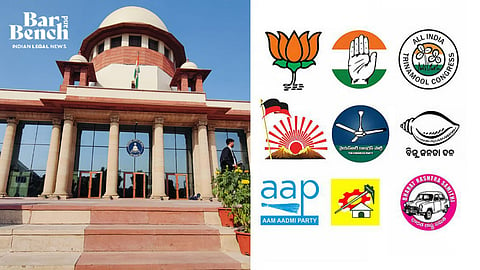
- Latest Legal News
- News
- Dealstreet
- Viewpoint
- Columns
- Interviews
- Law School
- Legal Jobs
- हिंदी
- ಕನ್ನಡ

The Supreme Court on Monday sought the Election Commission of India’s (ECI) response to a public interest petition challenging the constitutional validity of Section 13A(d) of the Income Tax Act, which permits political parties to accept cash donations up to ₹2,000. [Dr. Khem Singh Bhati vs. Election Commission of India & Ors.]